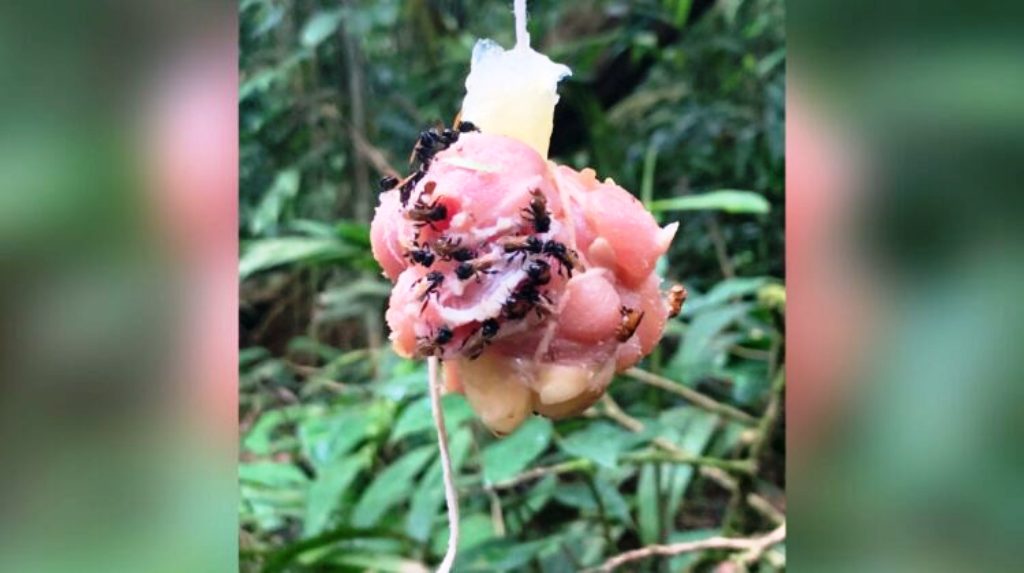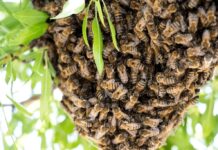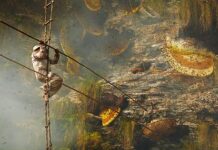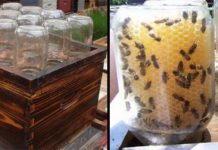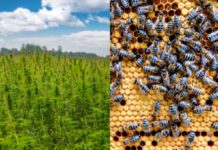According to experts, while most bees graze on pollen and nectar, some have acquired a desire for rotting meat.
A stingless tropical insect developed to have an additional tooth for biting and a gut similar to that of vultures in order to munch on flesh, according to a research released last week in the journal mBio of the American Society of Microbiologists.
What is the cause for this? This is most likely due to intense rivalry for nectar, according to research co-author Laura Figueroa.
“Most people imagine meadows of wildflowers when asked where they can locate bees. While this is true for almost all species, there is a subset of bees known as vulture bees that can be found slicing pieces of flesh from corpses in tropical jungles,” the authors wrote in the research titled “Why Did the Bee Eat the Chicken?”
Only three bee species have developed to eat flesh solely, according to the research, though other species that scavenge for pollen and nectar may devour animal corpses when they are accessible.
In order to draw vulture bees, researchers went to Costa Rica and suspended raw poultry from trees.
They dodged bullet ants and fixed the issue when the chicken was taken by other animals, according to Figueroa, a postdoctoral study associate at Cornell University. Researchers from Columbia University and the University of California, Riverside also took part.
While stingless bees gather pollen in tiny baskets on their rear legs, vulture bees use the baskets to carry their flesh, according to the research.
“They had little chicken baskets,” entomologist Quinn McFrederick of UC Riverside said in a statement.
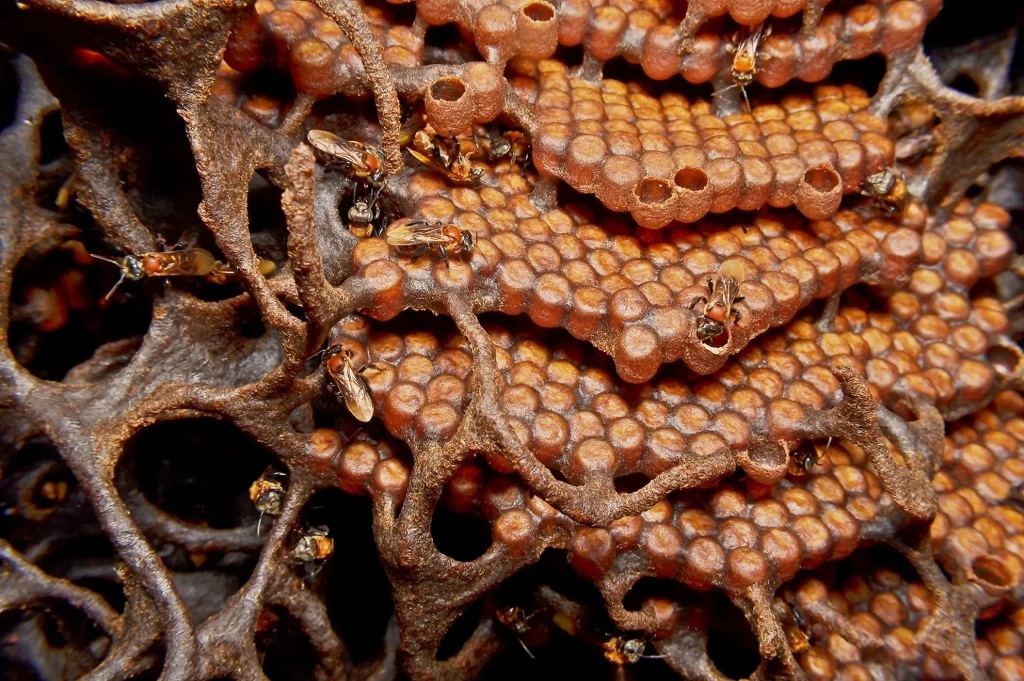
According to the researchers, the pollinators also favored new meat that was just starting to degrade and avoided completely rotted flesh.
According to Figueroa, further research showed that the vulture bee gut microbiome includes acid-loving bacteria comparable to those found in vultures and hyenas. Lactobacillus, a type of bacteria found in vulture bee intestines, is also found in fermented foods like sourdough, and Carnobacterium, another type of bacteria found in vulture bee guts, is linked to meat processing.
The bacterium, according to Figueroa, shields the pollinators from pathogens found in rotting flesh.
“We can tell if something has gone bad in our fridge by opening it.” “And eating it will make you sick,” she said. “Scavengers have evolved this microbiome and physiology to deal with that bacteria while still utilizing that food source.”
Figueroa says that vulture bees continue to make delicious, edible honey, despite the fact that she has never sampled it.
Many carnivorous wasps, on the other hand, are not as delectable. Though they cannot strike, some species can bite and a few “produce blister-causing secretions in their jaws, causing the skin to erupt in painful sores,” according to one of the study’s authors, UC Riverside entomologist Doug Yanega.
Figueroa, on the other hand, finds the creatures charming. When she first encountered the pollinators in 2015, she “fell in love with them” and wanted to do more study on the understudied species.
“They’re not scary, even if they sound scary,” she clarified.

She believes that the research will promote environmental protection in bee habitats and “get people excited about the world’s diversity of animals.”
The researchers plan to continue researching vulture bee microbiomes to record more of the bacteria, fungi, and viruses discovered in their systems.
“There’s still a lot we don’t know about these bees,” Figueroa said. “A lot of questions remain unanswered.”
